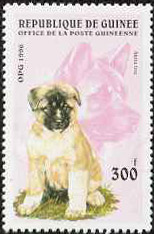
A New Owner's Guide to Scottish Terriers
Scottish Terriers are small terriers with dignity, which were bred to deal with rats and other vermin. They behave like typical small terriers on walks, tending to rush off after rabbits, so they can only be let off the lead in very safe areas, well away from traffic, since they go deaf when in pursuit of small prey. They need daily walks, and will exercise themselves if allowed off the lead with undergrowth to explore.
Scottish Terriers need a firm, but gentle hand in training, and can react badly to rough handling. They are independent dogs, and can be difficult and snappy as adults if not trained properly, especially if bite inhibition is not taught when they are young. However, well-trained Scotties are very good companion dogs, more serious and reliable than many small terriers, and are generally good companions for children, so long as the children respect them. Well-socialized Scottish Terriers are generally sociable with other dogs.
Scottish terriers aren't especially noisy, just enough to be good watch dogs. They don't shed much, and don't need much grooming, so long as they are given a regular trim. This breed is generally healthy, but can suffer from inherited health problems. Common health problems include Scottie cramp, which is treatable, and Von Willebrand's Disease. They can also suffer from hypothyroidism, knee problems and seizures. Like most small terriers, Scotties tend to be sensitive to fleas. This book is a good introduction to the breed, with advice on general care and training, as well as an account of the history of the breed.



